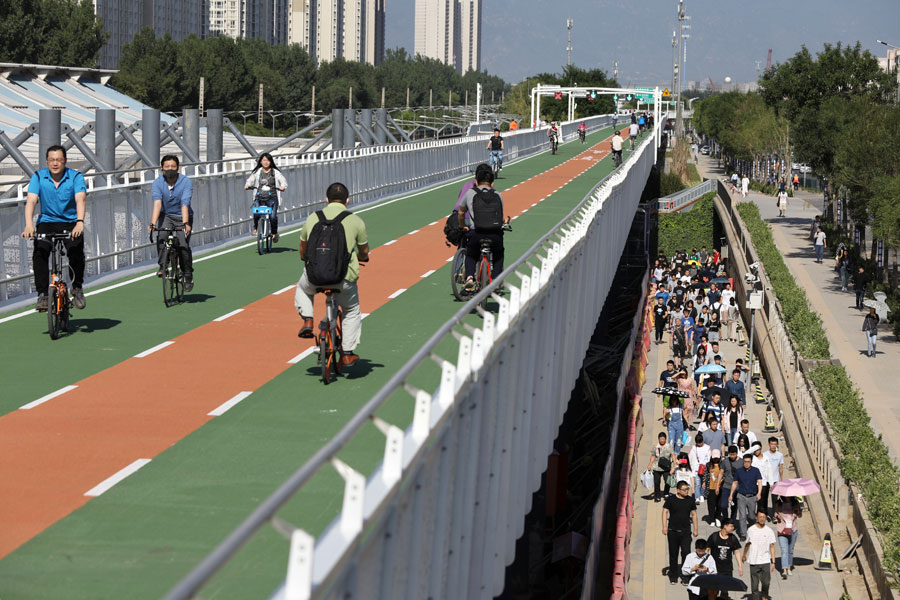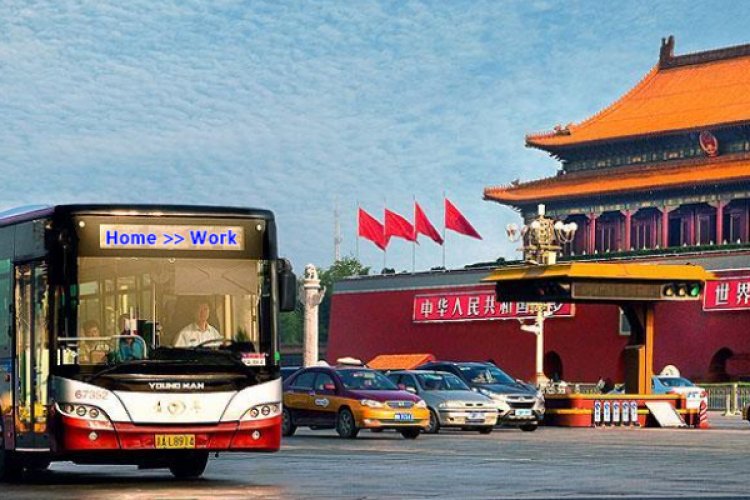Throwback Thursday: How a Dutchman Revamped Beijing's Biking Culture
You may have heard of Beijing’s biking highway – the bicycle-only road that opened in 2019, running from the northern neighborhoods Huilongguan to Shangdi and soon to be expanded from 6.5 kilometers to 13 kilometers, reaching all the way to Xizhimen – but you may not know of its Dutch origins.
Five years ago this month, we reported on an effort to restore Beijing’s bicycle culture to its former glory. In our report, damning statistics revealed just how badly bicycle traffic share had declined – from a 68 percent share of all Beijing traffic in 1986, the mighty bicycle plummeted to just 14 percent of traffic in 2012. By 2015, it was less than 12 percent.
Drastic measures were needed to shift gears from a downhill tumble to an uphill climb. Fortunately, Dutch cycling traffic engineer Wim van der Wijk was ready to saddle up for the challenge. Having worked in Amsterdam, which at that time was the most bike-friendly city in the world, according to the Copenhagenize Index (the Danish capital for which the index is named has since reclaimed its rightful place on top), van der Wijk saw Beijing's untapped potential.
While the city had plenty of bike lanes, van der Wijk observed, they just weren’t being used as efficiently as they might be due to a rising car culture and a growing city sprawl that rendered many bike trips unfeasible. His plan was to secure funds from the Asian Development Bank to fundamentally overhaul Beijing’s transportation infrastructure, figuring that with the right investments, bicycle traffic share could be as high as 20 percent in 2020.

Well, here we are. Though we weren’t able to find recent data on bicycle traffic share, Beijing News reported that in 2017, the capital saw its first uptick in bicycle traffic share in decades.
Typically, the rise of sharebikes is credited for this reversal, but we should not discount van der Wijk’s contribution. For one thing, his plan enabled the success of sharebikes by encouraging the city to improve its bike-friendliness – as the Beijing News report indicates, the city had repaired over 1,000 kilometers of bike road by 2017, blocked off larger vehicles from scores of lanes within the Third Ring Road, and serviced hundreds of overpass bridges. Moreover, his plan included funding better quality public transit, which encourages sharebike use according to the "last-mile" commuting principal, or the idea that bikes and public transit can be synergized to discourage commuting by car.

The improvements continued, but before we get to that, let’s take another look at the Copenhagenize Index. Though over 100 cities are analyzed for this prestigious list of the world’s most bikeable cities, only the top 20 are published, which means we don’t know how well Beijing is ranked, only that it is worse than Hamburg, which has a score of just 52.7 percent. (Compare that to Copenhagen’s winning score of 90.2 percent.)

But how does the index score cities, exactly? According to their website, the methodology is based on three equally-weighted sets of parameters: streetscapes (infrastructure and facilities), culture (respect towards biking and bicycle safety), and ambition (steps taken to advocate for bicycle usage).
That brings us to the bicycle highway, a project that, despite getting off to a rocky start, plays into all three of those parameters. The highway is not only a piece of infrastructure that makes countless destinations more bikeable for thousands of Beijingers, but is also a symbol of respect towards cyclists and their safety as well as an undeniable ambitious attempt at encouraging cycling.
Of course, anyone who has ever been threatened by a scooter zooming the wrong way on a bike path in Beijing knows that the city has a long way to go before it can be considered truly bikeable, but as investments continue to be poured into such grand projects, don’t be surprised if you see a headline in the coming years declaring that Beijing has finally cracked the top 20.
READ: Swinging on a Single-Speed: Beijing's Bike Polo Team Offers a New Way to Cycle
Images: China Daily, Lifegate, Beijing Daily, Travel to Hamburg







